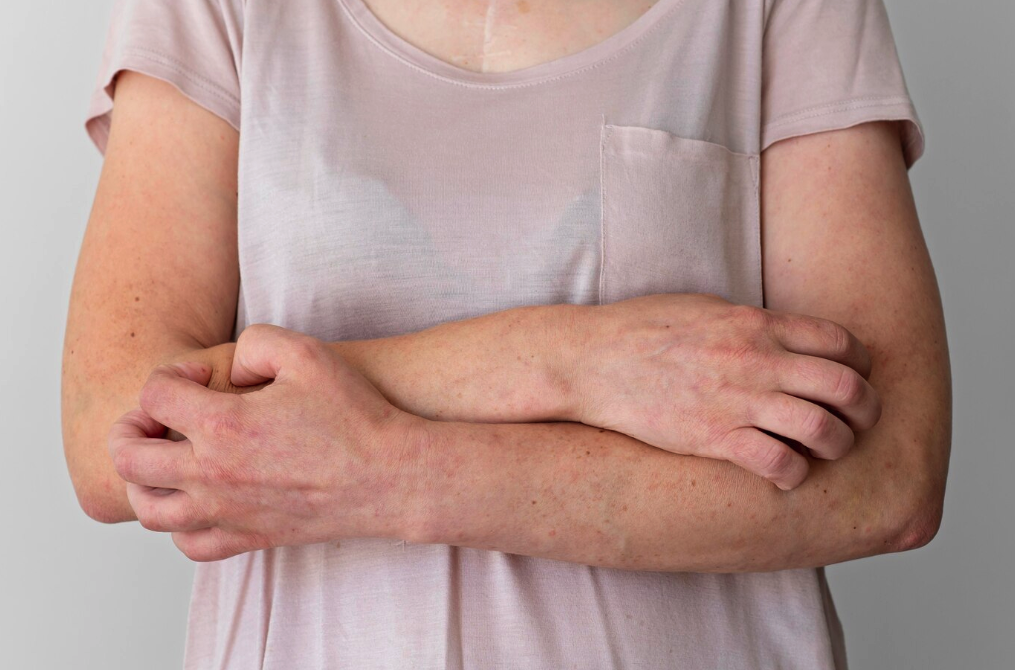Understanding what is the main reason for psoriasis can help you manage this condition effectively. This condition causes your body to produce skin cells too quickly, leading to thick, red, scaly patches on the skin. Psoriasis is not just a skin problem, it’s a chronic autoimmune disease that affects how your immune system functions.
Still, many people don’t realize that their immune system plays the biggest role in causing flare-ups. Triggers like stress, infections, or certain medications may worsen symptoms, but the underlying issue is immune system miscommunication. That’s why understanding this main cause is important for anyone living with psoriasis.

How the Immune System Causes Psoriasis
Your immune system normally protects you from infection and illness. In psoriasis, your immune system becomes overactive and sends faulty signals. These signals speed up the growth cycle of skin cells.
Instead of forming and shedding skin every 28 to 30 days, your body pushes new skin cells to the surface in just 3 to 7 days. The skin doesn’t have time to shed properly, so cells pile up—causing raised, red, and scaly patches called plaques.
This immune overreaction is the root cause of psoriasis, and it’s why treatments often focus on calming the immune response.
Common Triggers That Worsen Psoriasis

While the immune system causes the condition, certain triggers can activate or worsen symptoms. These don’t cause psoriasis directly, but they can lead to flare-ups in people with the condition.
Common triggers include:
- Stress: Emotional or physical stress can cause your immune system to flare
- Infections: Illnesses like strep throat may trigger outbreaks
- Cold weather: Dry air and lack of sunlight can increase symptoms
- Skin injuries: Cuts, burns, or sunburns may lead to new patches (Koebner phenomenon)
- Certain medications: Drugs like beta-blockers or lithium may affect immune responses
If you live with psoriasis, learning to manage or avoid these triggers can reduce the severity of symptoms over time.
Why Psoriasis Is an Autoimmune Disease
Doctors classify psoriasis as an autoimmune disease because it involves the immune system attacking healthy tissue by mistake. In this case, it targets the skin.
Other autoimmune diseases include rheumatoid arthritis, lupus, and multiple sclerosis. Some people with psoriasis also develop psoriatic arthritis, where joints become swollen and painful along with the skin symptoms.
Knowing that psoriasis is an immune-driven condition can help you choose treatments that go beyond skin care and address the root of the problem.
How Treatments Target the Immune System

Many treatments for psoriasis work by calming the immune system. These include:
- Topical steroids: Reduce local inflammation on the skin
- Phototherapy: Uses UV light to slow skin cell growth
- Systemic medications: Pills or injections that regulate immune activity
- Biologics: Advanced treatments that target specific immune pathways
Biologic drugs, for example, block certain proteins that trigger inflammation. These can reduce flares and improve skin appearance over time, especially in moderate to severe cases.
What Every Patient Should Remember
If you have psoriasis, it’s important to know that your immune system, not your hygiene, diet, or skincare routine—is the main reason for the condition. You didn’t cause it, and it’s not contagious. Psoriasis is a long-term condition, but with the right treatment and care, you can manage symptoms and improve your quality of life.
Work with your doctor to build a plan that fits your symptoms and lifestyle. By understanding the immune system’s role, you can make informed choices and avoid common misunderstandings about psoriasis.
Conclusion
In summary, the main reason for psoriasis is an overactive immune system that causes skin cells to grow too quickly. This process leads to thick, scaly patches and long-term skin discomfort. Triggers can worsen symptoms, but they don’t cause the condition itself.
Knowing the true cause helps patients focus on the right solutions. If you treat the root of the problem—the immune response—you give yourself the best chance for clearer skin and fewer flares.
